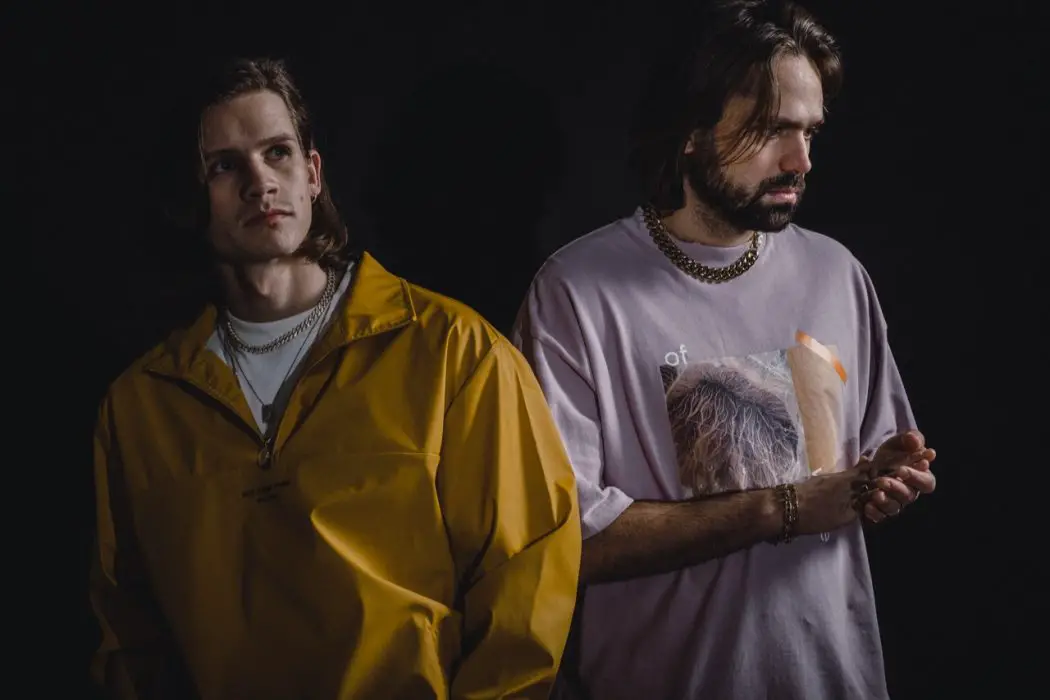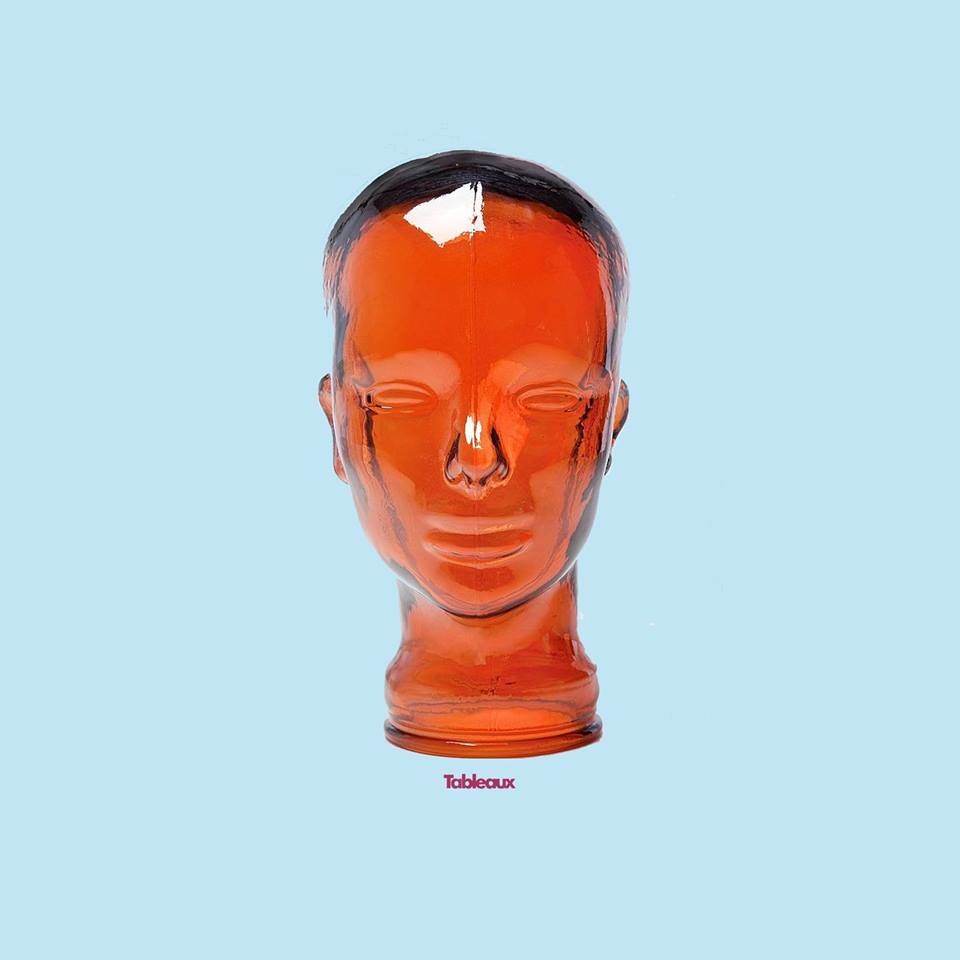Lemaitre’s impassioned new ‘JGM’ EP is as euphoric as it is cathartic, an immersive escape from (and embrace of) reality that pays homage to the duo’s close friend and unofficial third member with grace, love, energy, and affection.
To some it may sound a bit sad, but it’s also a celebration of life, and an appreciation of life’s ups and downs.
Lemaitre’s impassioned new EP is as euphoric as it is cathartic, an immersive escape from (and embrace of) reality made all the more powerful by the world into which it was released. Named after the late Johannes Greve Muskat, JGM pays homage to the duo’s close friend and unofficial third member who passed away last year – and it does so with tremendous grace, love, energy, and affection.
How better to honor and cherish a life, than through a buoyant and heartfelt celebration?

Though they’re nearly a decade into their career, Lemaitre – the LA-based band of Norwegian artists Ketil Jansen and Ulrik Denizou Lund – feel like their story is only just beginning. What’s more, their latest music sounds just as fresh as their perspective: JGM, released May 22 via the pair’s own label Substellar Records, marks Lemaitre’s first release since splitting with major label Capitol Records.
“We’ve always been free to make music how we wanted under our previous label, but being totally independent now means more freedom to release music when we want and how we want,” the band explain.
From a creative perspective, JGM finds Lemaitre tapping into new peaks of sound and depths of meaning.
It’s an exciting new offering and certainly a nod to Lemaitre’s artistic growth, but it’s important to acknowledge that this music comes not from a place of happiness, but rather a space of loss and grief.
“Johannes, or Joe as he’d usually go by, was like a third member of our group and had been with us from the start,” the band says. “We shared studios and also lived together in LA for a few years. We would write together and he would do almost all of our visuals, artwork and music videos. It was a huge shock when he passed away last year from an accidental overdose of painkillers. But Johannes lives on in his art and in our memories.”

Muskat also lives on through JGM, whose four songs find his two friends celebrating the person he was, while they themselves struggle to accept his passing. As Lemaitre themselves explain, it’s “an EP which has its sad moments and touches on issues of life and death… To some it may sound a bit sad, but it’s also a celebration of life, and an appreciation of life’s ups and downs.”
That’s life, right? And yet, a quick listen to JGM‘s inspiring lead single “Wondering If I’ll Ever Come Down” finds Lemaitre wholeheartedly embracing the moments they’re given. A feverish indie pop anthem full of verve and exuberance, the song throws caution to the wind as Lemaitre soundtrack the phrase, “seize the day.”
I’m gonna live no matter what
Wondering if I’ll ever come down
I ain’t even touched the ground
I ain’t gonna live forever
I’m gonna live no matter what
Wondering if I’ll ever come down
Wondering if I’ll ever come down
“The song itself is about life’s ups and downs and realizing that despite the lows, the highs makes it worth to keep going,” Lemaitre share.
So begins a fleeting, yet instantly memorable thirteen-minute escapade into the depths of life, death, and all that in-betweenness.
A powerful tribute to their late friend, Lemaitre have ushered in the new decade with a compelling record that will lift us up, up, and away. It’s a humbling new dawn for the newly-independent duo, but proud as they are of their past work, they’re even more excited and refreshed for what’s to come. “It only feels like the beginning, and there’s so much we still want to do and music we want to make,” Lemaitre express.
We can’t wait to join them on the journey ahead.
:: stream/purchase JGM here ::
Stream: ‘JGM’ EP – Lemaitre
A CONVERSATION WITH LEMAITRE

Atwood Magazine: Hey guys! How are you holding up through this strange, scary time?
Lemaitre: Hey! We’re healthy and fine, but it does suck. We don’t know the next time we can play a show or travel anywhere, but we realize it sucks for everybody else too, and a lot of people have it worse than us. So not much we can complain about. At least we’re able to continue making music.
2020 marks a decade since Lemaitre’s very first release. Listening back to The Friendly Sound and thinking about 2019’s Fast Lovers and your new EP, how do you feel you’ve grown over the past ten years?
Lemaitre: Has it really been 10 years? I find it hard to believe. It’s really hard to put it in perspective. You’re always looking ahead to the next thing, and suddenly another year has passed and you’re still not where you imagine you would be. But I hope we’ve grown as songwriters and artists; still, it only feels like the beginning and there’s so much we still want to do and music we want to make.
What is your relationship between electronic and organic instruments? Have you always made use of both, or has that aspect of your musicality changed dramatically throughout your career?
Lemaitre: We’ve learned more instruments and have become better musicians which naturally has led to the use of more organic instruments over time. But we’ve always mixed both, in the studio and in live shows.
Fast Lovers EP has been discussed as a “breakout” moment for you, but of course you’d been around for so long already… I think back to Cold War Kids’ 2015 #1 single ''First,'' which also arrived nine years into that band's career. Do you feel like Fast Lovers marked some kind of breakout moment for you, and if so to what do you credit that spark?
Lemaitre: Not really, we feel like every release has kinda slowly taken our career to the next step. And we’ve always looked towards the next. Feeling like we don’t really have time to linger on what we did previously.
Do any songs off Fast Lovers resonate with you still? Which tracks if any continue to hold special meaning for you?
Lemaitre: Yeah some of the songs are definitely very personal – “Big” and “Little Things,” in particular. “Big” being about the loss of someone you hold dear, and “Little Things” about learning to appreciate life.
It’s definitely worth talking about the fact that you are no longer with Astralwerks / Capitol Records, and now independent via Substellar Records. What has that change of label meant for you, and how (if at all) has inspired your new music?
Lemaitre: Substellar Records is our own label that we’ve wanted to get off the ground for a long time. We’ve always been free to make music how we wanted under our previous label, but being totally independent now means more freedom to release music when we want and how we want.
You ushered in the new decade with the inspiring “Wondering If I’ll Ever Come Down,” a feverish indie pop anthem full of life and exuberance. What does this song mean to you, and why did you choose it as your lead single and EP opener?
Lemaitre: We felt the song had a nice hopeful vibe and would do well as a single for an EP with more heavy subject matter. The song itself is about life’s ups and downs and realizing that despite the lows, the highs makes it worth to keep going.
“Eyes Wide Open” keeps the energy high with a passionate blaze of hope and possibility. I love the idea of a feel-good dance number – especially right now, when everyone’s largely confined to their homes. What inspired this track?
Lemaitre: We wrote the main part of the track when we were in Stockholm last summer to play Lollapalooza there. We were having a pretty good time, weather was perfect and we drank some good apple cider. I guess that’s a good inspiration for anything.
The harmonies in “Joe” are very special and moving, not to mention the refrain, “Nobody ever really goes away.” Can you talk a little more about this song and its namesake, Johannes Greve Muskat? I’d love to hear more about who he was to you, and what he meant to Lemaitre the band. He sounds like a special person.
Lemaitre: Johannes or Joe as he’d usually go by was like a third member of our group and had been with us from the start. We shared studios and also lived together in LA for a few years. We would write together and he would do almost all of our visuals, artwork and music videos. It was a huge shock when he passed away last year from an accidental overdose of painkillers. But Johannes lives on in his art and in our memories.
You close on another high note with “Stop Me Fast.” Why end with this song?
Lemaitre: It felt like a fun track and a reminder to keep going and having fun while it lasts. A fitting ending to an EP which has its sad moments and touches on issues of life and death.
It seems to me like one of the threads connecting all of these tracks, and this entire EP, is deeper thinking about life, death, existence, and finding purpose to our days. Do you feel like you’ve been more inspired to dive into these “deeper” subjects lately, and do you see these conversation-inspiring subjects as charting a new course for Lemaitre’s music?
Lemaitre: I think we’ve definitely been more inspired by these thoughts as they have been more prevalent the last year, after we lost Johannes. It’s also just something that I guess becomes more natural to think about as you get more experience with age and you become willing to write more personal music. I wouldn’t say it’s a new course, just a result of having a broader spectrum of experiences to take inspiration from.
Lastly, what is one thing you hope your listeners take away from this new EP?
Lemaitre: We hope different people can take away different emotions from it. To some it may sound a bit sad, but it’s also a celebration of life, and an appreciation of life’s ups and downs.
— —
:: stream/purchase JGM here ::
— — — —

Connect to Lemaitre on
Facebook, Twitter, Instagram
Discover new music on Atwood Magazine
? © 2020
:: Stream Lemaitre ::








